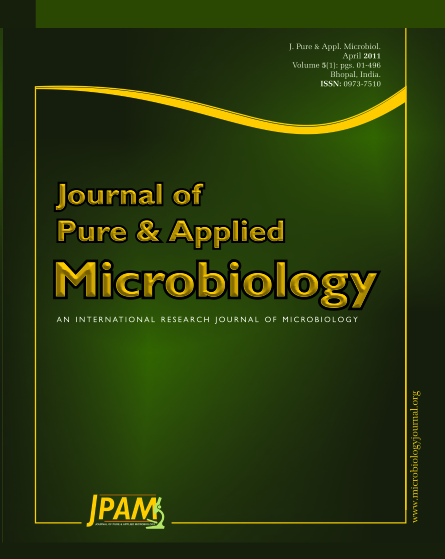Cotton is the world’s most important non-food agricultural commodity, which is easily damaged by various sucking pests like jassids, aphids, thrips, whitefly, red spider, mites, mealy bug and bollworms. Pesticides and their residues pose a major problem by their accumulation in different parts of the world in general and in different biological organisms of the food chain in particular. In the light of the importance and essentiality to overcome the deleterious effects of pesticides, the present study has made an attempt to isolate the fungal species capable of degrading organophosphorus pesticides (chlorpyriphos, malathion and triazophos) that are widely sprayed on cotton crop in Andhra Pradesh and to develop a model for the control of pesticide pollution. The isolated species were identified basing on microscopic structural and growth characterization studies together with scanning electron microscopy and the molecular characterization was also done basing on the sequence analysis of the DNA coding for 18s rRNA of the test fungal organism. The results may fit the findings of others on the ability of some fungi to degrade pesticides and introduce some new information on mineralization of the organic constituents of pesticides. It was elucidated that the selected fungal species is an effective biodegrading agent and by optimizing the different cultural conditions and by using large scale culture techniques, this fungal species, Rhizopus oligosporus, can be very effectively used as biodegrading agent in cotton fields as effective biocleaner and will be an economically effective microbial process which is an alternative for control of environmental pollution.
Pesticides, Organophosphates, Biodegradation, Environmental pollution
© The Author(s) 2011. Open Access. This article is distributed under the terms of the Creative Commons Attribution 4.0 International License which permits unrestricted use, sharing, distribution, and reproduction in any medium, provided you give appropriate credit to the original author(s) and the source, provide a link to the Creative Commons license, and indicate if changes were made.


